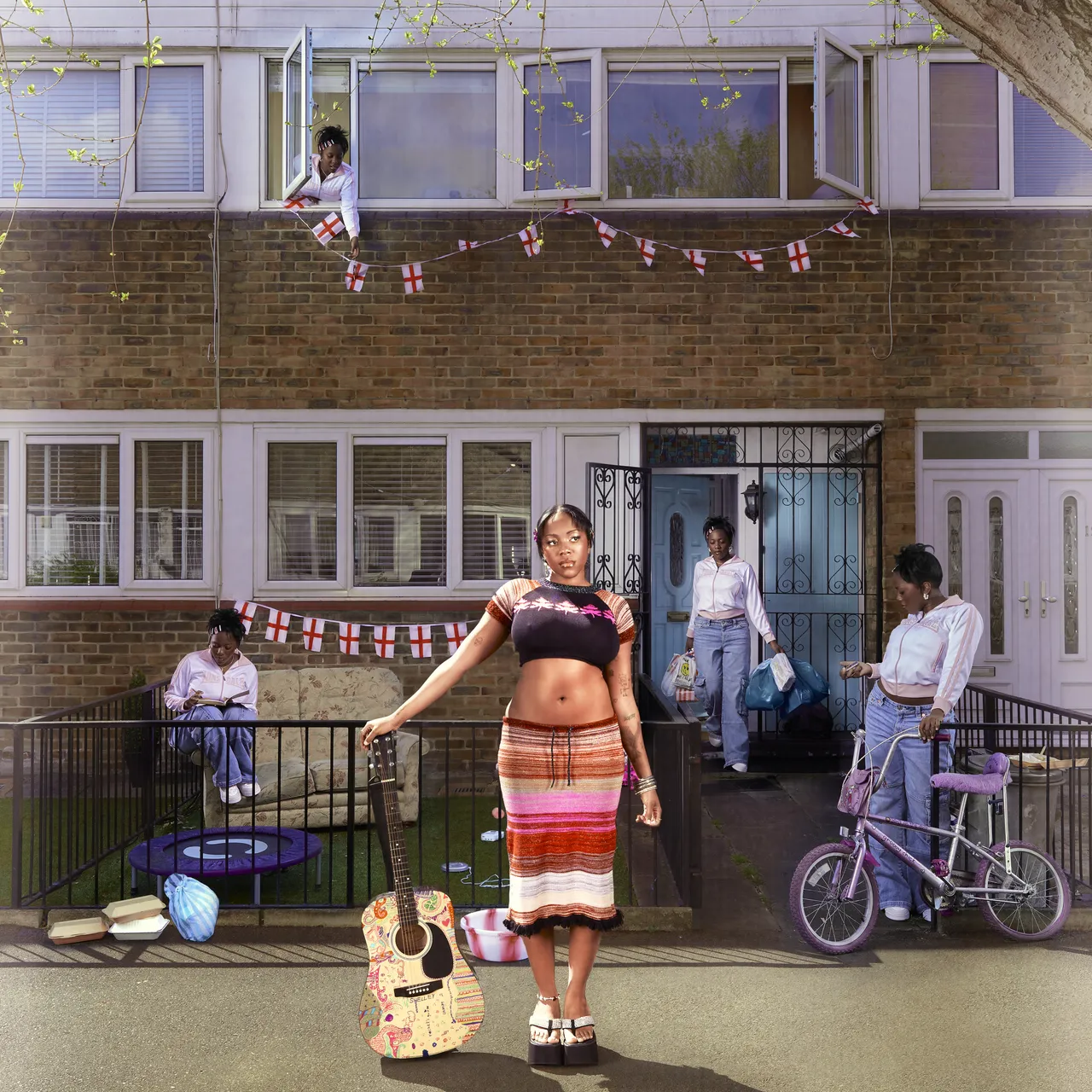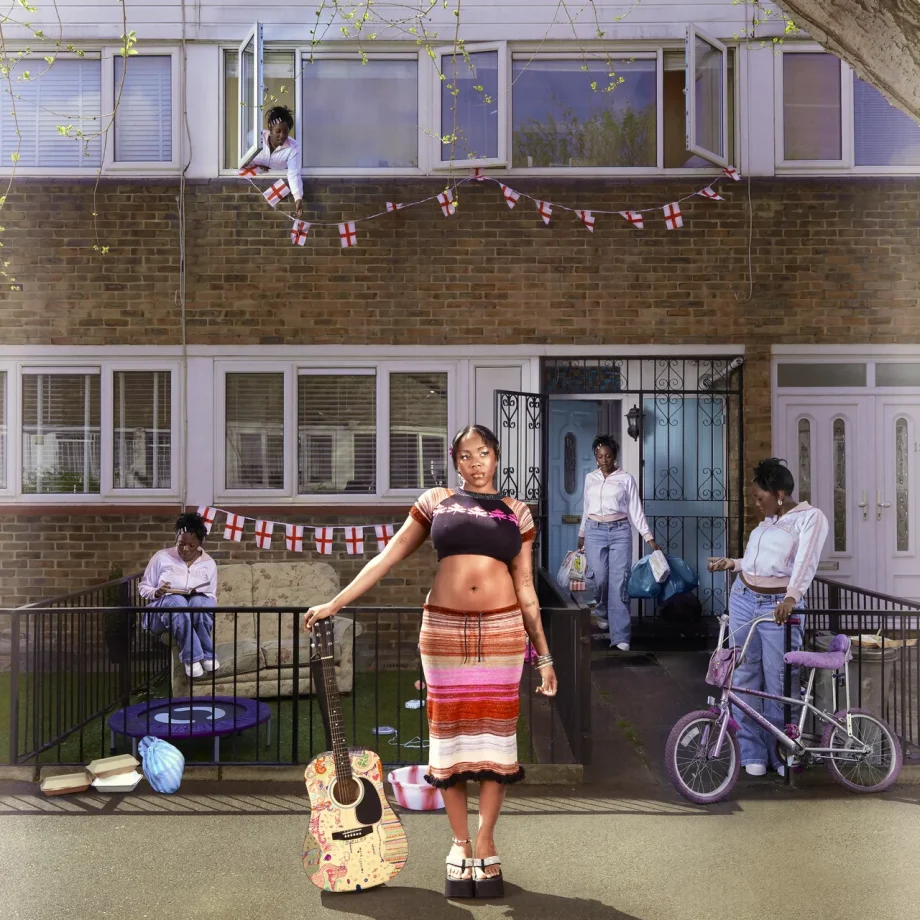Professional declutterer Marie Kondo operates by a simple principle: every item in her home must “spark joy” when she holds it. If not, it’s on the chopping block. The Japanese term for this now-popular phrase is “tokimeku,” which also literally describes a fluttering heart. Zimbabwean-English artist Rachel Chinouriri dedicates a song to Kondo on her debut album, What a Devastating Turn of Events, now available in a deluxe edition. “I’m getting rid of everything/Starting with you,” she declares, her husky voice barely breaching a whisper. Throughout the album, Chinouriri is taking inventory—chasing the tingly feeling that comes with upending the status quo.

“The kids are throwing up in the Garden,” she sings of regretful alcohol-filled nights in the opener “Garden of Eden,” setting the album’s theme of purging. The audible click of a cassette tape sets a nostalgic mood: With Sugababes and Lily Allen-inspired kiss-offs (“Never Need Me,” “It Is What It Is”) and thunderous production reminiscent of Coldplay (“The Hills,” “Cold Call”), Chinouriri reveals herself as a fan of British pop and alternative artists of the noughties. Her neo-soul vocal modulations, internet-age references, and lyrics that center the experience of a dark-skinned woman—“I love myself/I love my skin”—distinguish her from predecessors. The 25-year-old musician developed a subdued singing style to pacify her family, who would periodically shush her during recording sessions. As grungy whirlpools of guitar threaten to drown her out on “The Hills” and “Cold Call,” she sounds like someone learning to yell for the first time in her life. What a Devastating Turn of Events documents a distinctly Black working-class experience of British life. On the cover, Chinouriri and her guitar stand in front of a council estate row house draped in miniature St. George’s Cross flags. “Really easy for you to pick and choose a woman worthy of your flat in West Croydon with those roadman shoes,” she taunts someone from her South London hometown. With their fluting vocals and bird chirps, her songs could fit on the soundtrack of Michaela Coel’s sitcom Chewing Gum, about a 24-year-old British-Ghanaian woman trying to lose her virginity. Through humor, pop hooks, and scenes of emotional intimacy, both works juxtapose the vibrancy of life with the drab realities of public housing.
In her lyrics, Chinouriri tackles heavy themes of suicide, eating disorders, and depression without succumbing to internet brain rot. “Dumb Bitch Juice” may be a social media catchphrase, but Chinouriri’s bluesy tone of voice seems to emanate from an earlier era. “I’ll end up the one/Who pays all of the bills/While your family call me unstable,” she prophesizes, imagining herself giving up a bright future for the validation of a no-good man. She sings with a weariness like she’s lived this dynamic in a past life; more likely she’s simply witnessed it among an older generation. Deluding yourself into thinking you can turn a loser into a supportive partner happens to the best of us, as the accomplished BBC Radio 1 host Clara Amfo affirms in a closing radio drop. “Never Need Me,” the lead single, is Chinouriri’s electric farewell to wastemen and to the version of herself who thirstily laps up their approval. When a former lover comes crawling back, she’s tempted but responds with a shrug: “If you can’t change, I doubt that I can help you.” She’s pettier on “It Is What It Is,” where her monotone delivery conveys pure annoyance: “I know you won’t text or anything, I know what you’re like/Hot and cold, hit and miss, up and down/And a bit of a prick, really.” As lighthearted as the breakup tracks are, Chinouriri conveys just how dangerous patriarchal ideals can be. The title track “What a Devastating Turn of Events” recounts the depressive spiral and eventual suicide of Chinouriri’s cousin in Zimbabwe. After she discovers she is pregnant, her once-adoring boyfriend abandons her and their unborn child. “Out of wedlock which her family despise/But if she lost it, it would still be a crime,” Chinouriri narrates. The women in her extended family did not have the same choices that she enjoys, but Chinouriri recognizes that real, life-altering change requires even more: It means being willing to sacrifice communal approval. “No point in trying to prove yourself to them/Why question who you are from deep within?” she declares on “Garden of Eden.” With tears, feeling, and the occasional fit of vomiting, she salts the soil she once tended.
